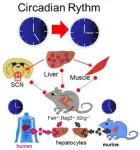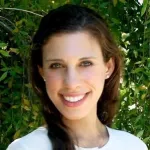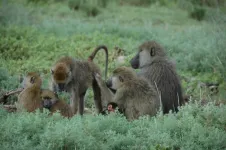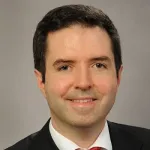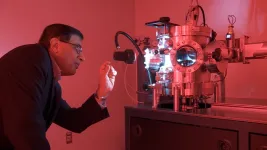Liver cells control our biological clock
2023-05-17
(Press-News.org)
Organisms rely on a biological clock known as the ‘circadian’ clock to regulate their activity according to the time of day. A central clock, constituted by a group of brain cells — the suprachiasmatic nuclei, or SCN — synchronises the circadian clocks present in all body’s organs, called ‘peripheral’ clocks. Until now, synchronisation of the circadian cycle in mammals was thought to be a one-way mechanism in which the suprachiasmatic nuclei alone synchronized the peripheral clocks.
Scientists from CNRS, Université Paris Cité1 and the University of Queensland2, however, in the framework of a joint EU endeavour3, have just shown that the liver also influences peripheral clocks. Teams studied a chimeric mouse model with a liver containing human hepatocytes and observed that the daily cycle of these usually nocturnal animals had advanced by two hours.
The mice became active and began feeding two hours before nightfall, thus becoming partly diurnal. The researchers believe this shift comes from the mice’s central clock being taken over by the human liver cells in this chimeric animal model. These cells can thus affect the entire rhythmic physiology of the animals, including the clocks of the peripheral organs.
Findings suggest that a change in liver clock — for example in pathological condition such as cirrhosis — could affect the synchronisation function of the central clock. This in turn could affect the entire circadian physiology, including the sleep/wake cycle, and contribute to the development of metabolic disease. It also suggests that restoring disrupted liver biological rythm could benefit the entire body metabolism. The hormonal and nervous mechanisms driving this dialogue between the brain, liver and biological clock remain to be identified.
Notes
1 - At the Unité biologie fonctionnelle et adaptative (CNRS/INSERM/Université Paris Cité)
2 - Institute for Molecular Bioscience, The University of Queensland, Australia
3 - Study carried out as part of the EU-funded HUMAN consortium on Health and the Understanding of Metabolism, Aging and Nutrition.
END
ELSE PRESS RELEASES FROM THIS DATE:
2023-05-17
DURHAM, N.C. -- Decades of research show that experiencing traumatic things as a child -- such as having an alcoholic parent or growing up in a tumultuous home -- puts you at risk for poorer health and survival later in life.
But mounting evidence suggests that forging strong social relationships can help mitigate these effects. And not just for people, but for our primate cousins, too.
Drawing on 36 years of data, a new study of nearly 200 baboons in southern Kenya finds that adversity early in life can take years off their lifespan, but strong social bonds with other baboons in adulthood can help ...
2023-05-17
Heart transplant recipients receiving organs from active COVID-19 positive donors may have an increased risk of death at six months and one year when compared to those receiving organs from recently recovered COVID-19 patients and COVID-19 negative patients, according to a study published today in the Journal of the American College of Cardiology.
“These early trends should be concerning enough such that heart transplantation centers need to thoroughly evaluate and continue to weigh the risks/benefits of using hearts from active COVID-19 donors,” said Shivank Madan, MD, MHA, lead author of the study and a cardiologist ...
2023-05-17
University of Queensland-led research has revealed liver cells influence the body’s internal circadian clock, which was previously believed to be solely controlled by the brain.
Associate Professor Frédéric Gachon from UQ’s Institute for Molecular Bioscience and Dr Serge Luquet from Université Paris Cité/CNRS in France and their collaborators have demonstrated that mice with transplanted human liver cells had modified circadian rhythms.
Dr Gachon said the ...
2023-05-17
Researchers in the Department of Biomedical Informatics (DBMI) at the University of Colorado School of Medicine have reached a major milestone in developing standards and tools for creating phenopackets that may foster more innovation and advancement in the medical field by allowing health professionals to more easily collect and share data.
A newly-released paper highlights the latest suite of coordinated standards and tools used to collect data related to rare diseases.
The phenopackets, ...
2023-05-17
The ECOG-ACRIN Cancer Research Group (ECOG-ACRIN) announces the following cancer researchers as the recipients of the organization’s annual scientific leadership and mentorship awards. Through its Mentoring Program, ECOG-ACRIN formally recognizes outstanding scientific leadership through events and awards that identify, encourage, and recognize investigators in the early years of their careers. The program is expanding in 2023 with the addition of the Remarkable Mentor to Women in Oncology Award.
Young Investigator of the Year
Patrick M. Forde, MBBCh, is the 2023 recipient of the Young Investigator Award, a professional honor to recognize ...
2023-05-17
BIRMINGHAM, Ala. – Yogesh Vohra, Ph.D., is the principal investigator of a five-year, $8 million grant from the United States Department of Energy’s National Nuclear Security Administration Stewardship Science Academic Alliances program that supports fundamental research in materials under extreme conditions and in advanced manufacturing.
Vohra, a professor university scholar in the University of Alabama at Birmingham Department of Physics and associate dean in the UAB College of Arts and Sciences, says the grant will leverage the expertise of nine faculty members across five disciplines at UAB and the University of Massachusetts-Amherst, ...
2023-05-17
Contacts:
David Hosansky, NCAR/UCAR Manager of Media Relations
hosansky@ucar.edu
720-470-2073
Ali Branscombe, NCAR/UCAR Communications Specialist
abran@ucar.edu
651-764-9643
A new computer modeling technique developed by scientists at the National Center for Atmospheric Research (NCAR) offers the potential to generate months-ahead summertime drought forecasts across the Western United States with the capability of differentiating between dry conditions at locations just a couple of miles apart.
The technique uses statistical methods and machine learning to analyze key drought indicators during the winter and spring and correlate them with the likelihood of dryness throughout the ...
2023-05-17
In everyday life we experience light in one of its simplest forms – optical rays or beams. However, light can exist in much more exotic forms. Thus, even beams can be shaped to take the form of spirals; so-called vortex beams, endowed with unusual properties. Such beams can make dust particles to spin, just like they indeed move along some intangible spirals.
Light modes with such added structure are called “structured,” and even more exotic forms of structured light can be attained in artificial optical materials – metamaterials, where ...
2023-05-17
Surviving a stroke can bring many long-term effects – including a much higher risk of dementia. But a study suggests that blood sugar may play a key role in that risk.
Loss of general thinking ability happened much faster in stroke survivors who had high blood glucose in the years after their health crisis, even after accounting for other things that might affect their brainpower, according to a study published in JAMA Network Open.
Those whose blood pressures or cholesterol were high after their stroke did not lose points on tests of thinking ability, ...
2023-05-17
WASHINGTON – Researchers at Georgetown University Medical Center, in collaboration with George Washington University, leveraged their understanding of auditory speech processing in the brain to enable volunteers to perceive speech through the sense of touch. This may aid in the design of novel sensory substitution devices -- swapping sound for touch, for example -- for hearing-impaired people.
The findings appear in the Journal of Neuroscience on May 17, 2023.
“In the past few years, our understanding of how the brain processes information from different senses has expanded greatly as we are starting to understand how brain networks are connected across different ...
LAST 30 PRESS RELEASES:
[Press-News.org] Liver cells control our biological clock
